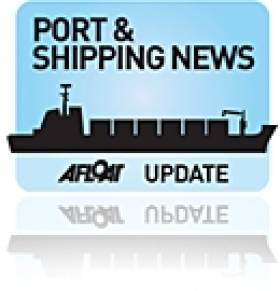Displaying items by tag: Port Development
Big Plans for Rosslare Europort
Ambitious plans to introduce load-on load-off (Lo-Lo) facilities at Rosslare Europort have been announced, according to a report in yesterday's Wexford People.
However, to facilitate all these developments, Mr Lynch said they will need the reclamation of up to 20 hectares of additional land and the deepening of part, or all, of the port from the current 7.2m to 9m and perhaps, eventually, 11m.
Mr Lynch said these developments would be facilitated, and accelerated, by of a port centric logistics zone (a grouping of activities dealing with freight transportation) on lands beside the south-eastern port.
Mr Breen said he recognises the 'fundamental and strategic importance of Rosslare Europort to the economic development of the county'.
The county manager said he will recommend that 'appropriate policies, objectives and development management standards are included in the draft plan to facilitate the development of the port', subject to the appropriate technical and environmental assessments.
As part of his submission, Mr Lynch also requested that the '1902 Lighthouse' at the port, which is recognised on the National Inventory of Architectural Services, not be included on the Record of Protected Structures.
Mr Breen said he would give further consideration as to whether it would be appropriate to de-list the lighthouse in advance of the draft plan.
Next month the port will host the annual Irish Ports Conference in the Ferrycarrig Hotel, Wexford on Friday 30 September.
- Rosslare Europort
- Ports and Shipping News
- Irish Rail
- Iarnrod Eireann
- Ferry news
- Rosslare Harbour
- Irish Ports Conference
- Irish Ports Association
- Ferrycarrig Hotel
- Railfreight
- Port Development
- National Inventory of Architectural Services
- Record of Protected Structures
- Irish Lighthouses
- Lighthouses of Ireland news





























































